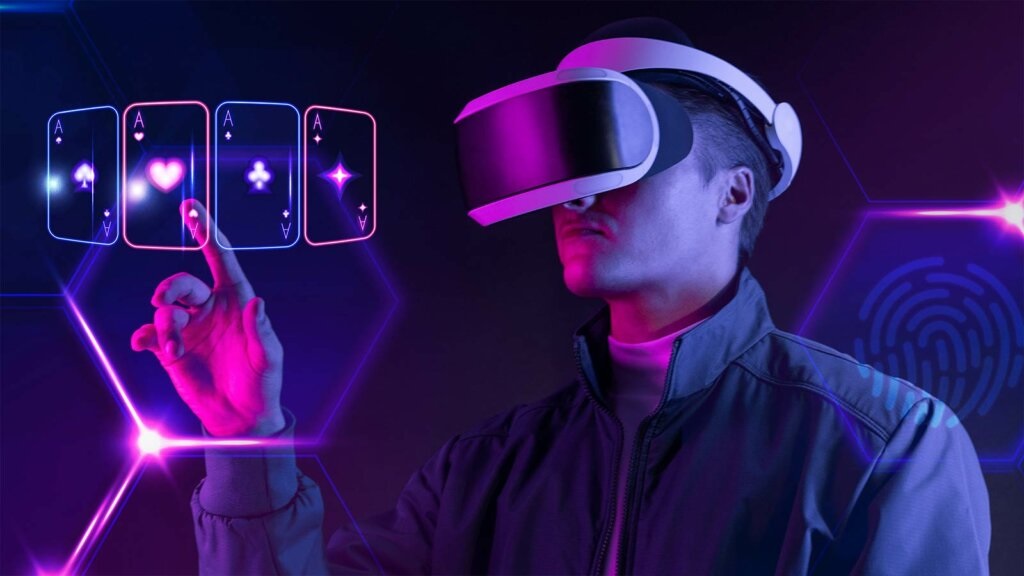Most innovations in the gambling space lately focus on improving mobile gameplay and boosting payment speed. Yet on the horizon lurks an emerging technology promising to radically transform casino entertainment as we know it – virtual reality. Once considered a far-fetched concept, VR-compatible headsets now sit poised for mainstream embrace. Audiences already flock to virtual venues for concerts and conferences. Global brands invite customers into VR stores stocked with digitized products.
Primer on virtual reality
For the uninitiated, virtual reality generates three-dimensional simulated environments users interact with and become deeply engrossed by wearing specialized electronic gear. State-of-the-art VR rigs feature:
- Goggles with dual ultra HD displays right in front of the eyes providing a 3D perspective with depth as users look around
- Integrated headphones with 3D audio for vivid sound FX reacting to head motions
- Tracking sensors mapping precise head movements to render an accurate viewing angle
The staring at a static flat screen, every slight turn of the head within a VR wm casino would reveal formerly obscured slots behind the player or gameplay at side tables. Players hear dice tumbling across felt and slot machines ringing all around. The enhanced sights and sounds produce unparalleled levels of immersion.
Current state of VR gaming
Several major players in the real money online casino industry recognize the massive potential VR holds. Software developers like Microgaming and NetEnt already etched their brands into the VR gambling space. However, finite challenges in infrastructure and hardware integration currently limit VR applications strictly to play money entertainment. Rather than wager and withdraw actual funds, existing virtual reality casino products focus solely on delivering next-gen social gaming in amazing VR worlds. Players collect non-monetary points and rewards used to unlock gameplay perks or redeem digital prizes.
Future possibilities for VR gaming
While momentum behind virtual reality casinos slowly builds in free play format, what possibilities exist long-term for real money VR gambling? Several crucial technological and legal advancements must emerge before VR betting is allowed in regulated markets. Immersed in a fully-fledged VR casino, players would fund accounts instantly via digital wallets or accumulated loyalty points tied to existing gaming profiles. Cryptocurrencies allow frictionless transfers of site balances back out to personal crypto wallets. 5G and WiFi 6 reduce latency while edge computing lessens processing loads.
Advanced biometrics would enable securely verifying ID for age and identity checks in virtual environments to prevent unauthorized access. 360-degree high-definition camera streams finally give players at home the equivalent experience of watching up-close gameplay at physical tables.
Current virtual reality trends provide insight into the speed of adoption and how quickly online casinos may embrace the medium. According to an April 2022 survey of VR device owners, regular daily usage doubled over 12 months up to almost 30%. The same report predicted around 25 million monthly VR users by 2024. Multiple analysts forecast the overall VR gaming industry easily exceeding $50 billion within 5 years. While social, skill-based, and shooter titles dominate currently, VR slots and poker both ranked among the top 10 game types exhibitors pushed at 2022 trade conferences.

